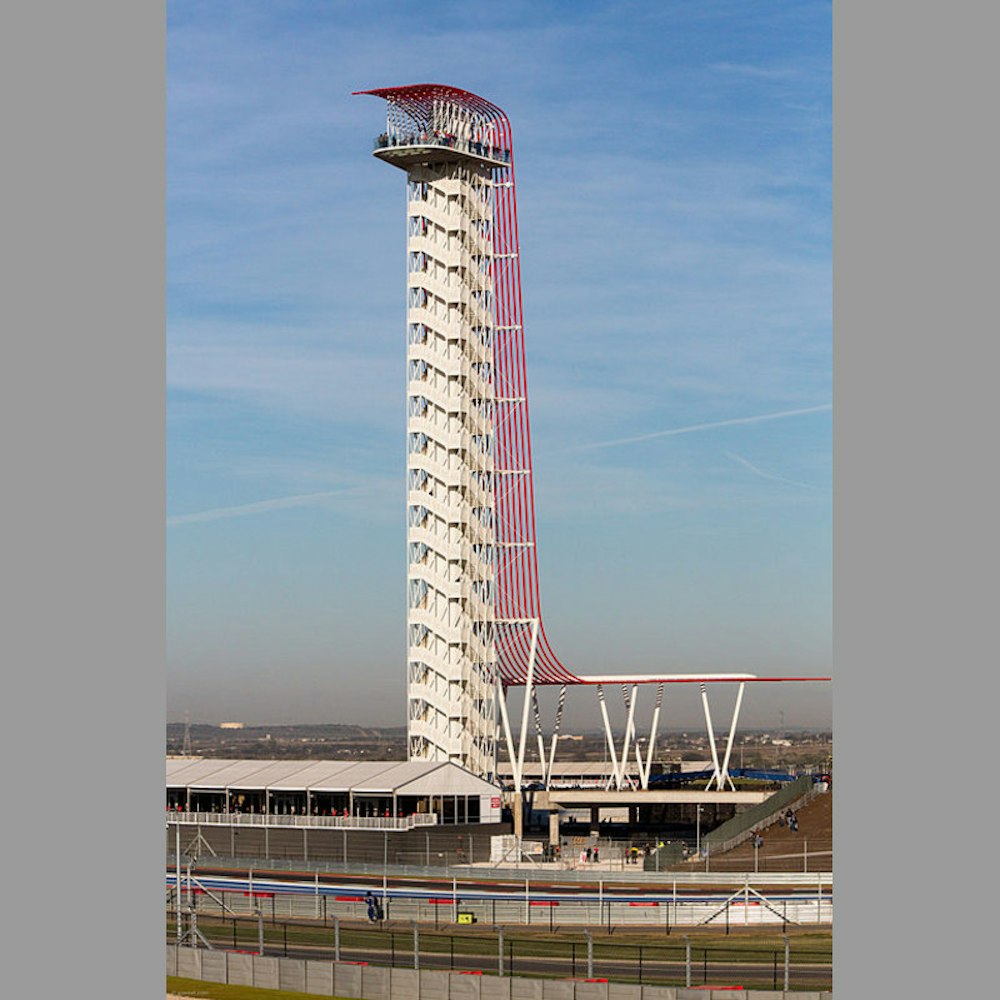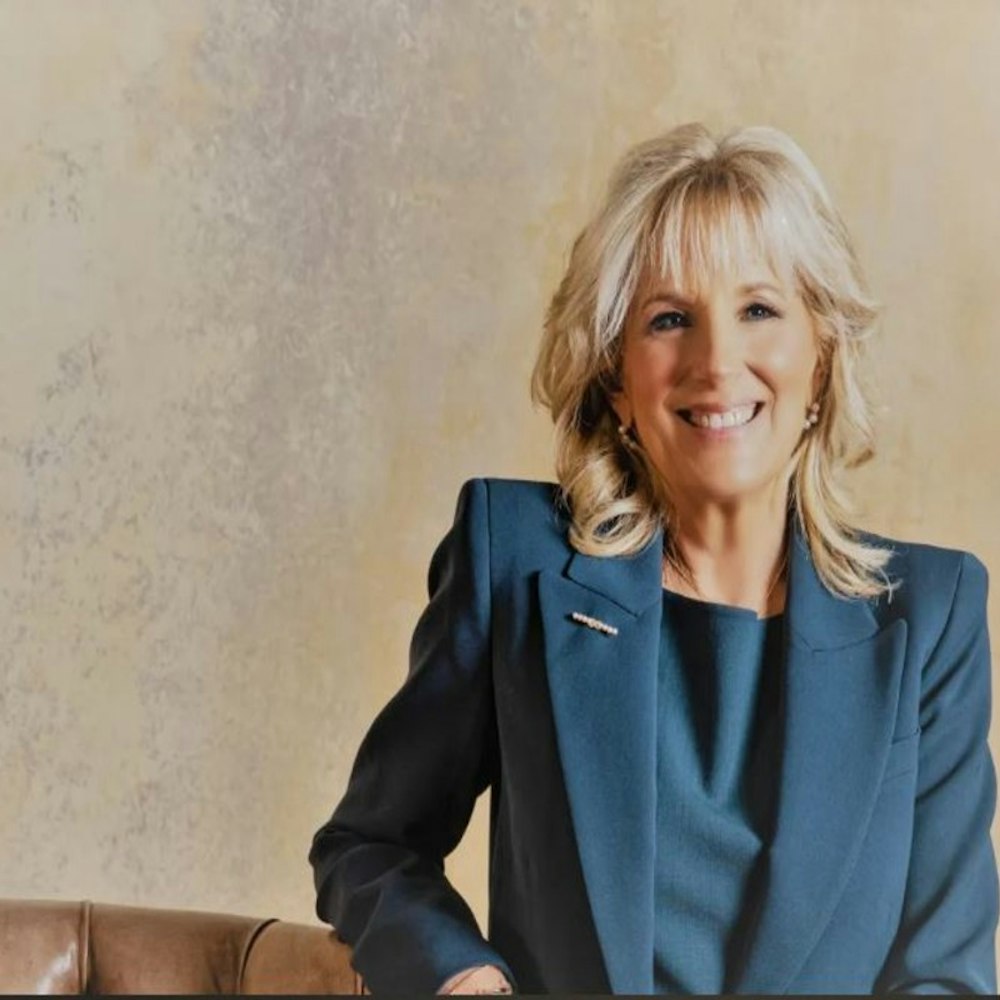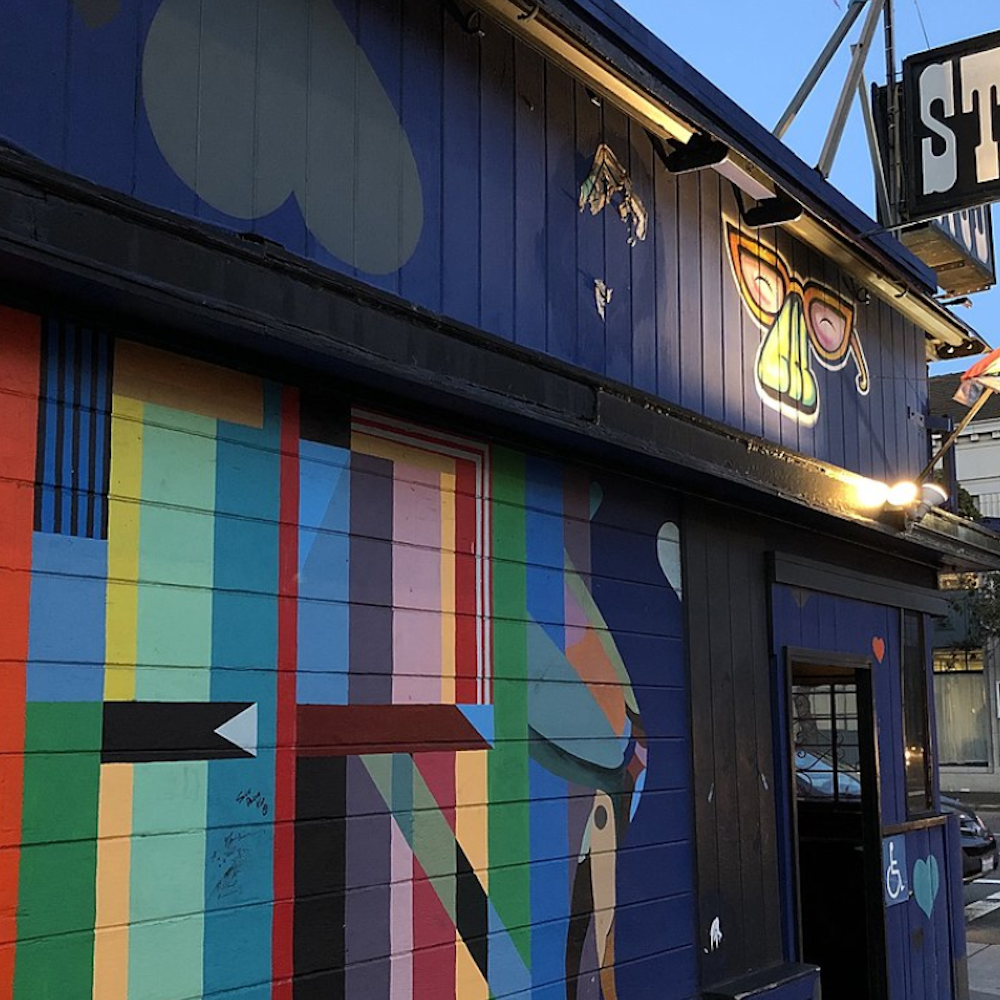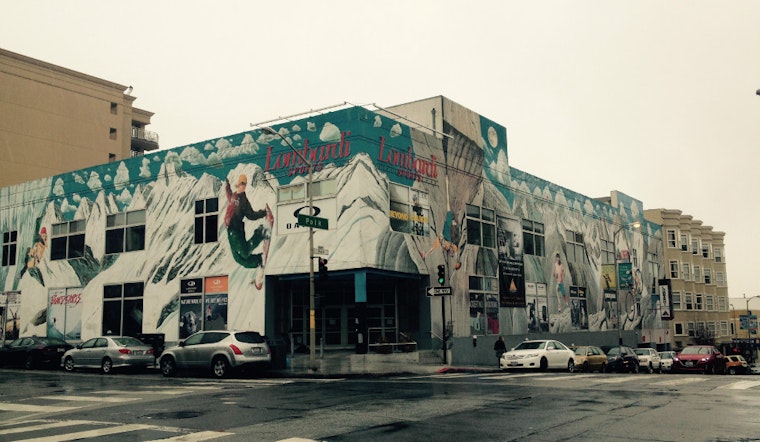
Earlier this month, District 3 Supervisor Aaron Peskin introduced legislation to the Board of Supervisors that seeks to prohibit formula retail in the Polk Street Business Corridor, much like similar bans that have already been enacted in Hayes Valley, North Beach and Chinatown. If approved, the legislation would ban new chain stores on Polk Street from Post to Filbert and on Larkin Street from Post to California.
And while some neighbors are ecstatic about this new development, others have concerns.
Currently, formula retail is allowed on Polk Street, but new chain stores hoping to set up shop on the corridor are required to secure a Conditional Use Authorization from the city, which can be a lengthy and costly process.
The impetus for potentially banning chain stores altogether seems to be the closing of Lombardi’s Sporting Goods, a family-run operation that had been in business for 66 years, 23 of those at 1600 Jackson St. (It opened on Clement Street in 1948, and moved to Jackson Street in 1993.) When word got out that there were several large-scale retailers eying the now vacant 50,000 square foot structure, many Russian Hill neighbors voiced their opposition.
However, Supervisor Peskin says conversations surrounding the proposed ban were happening before Lombardi shut its doors. “This was already being discussed by neighborhood associations. It would have already happened naturally. But, with several formula retail stores looking to move in, it moved things forward by a couple of months,” he said.
Housing First
After purchasing the two-story retail building from the Lombardi family in 2014, Village Properties submitted plans to demolish and replace it with a six-story mixed-use building with 62 condominiums over the ground-floor retail and basement parking. Soon after, however, Target Corporation approached the new owner and offered more than $1.5 million a year in rent. Village Properties tabled development efforts and reverted to potentially allowing the retailer to move in instead. But when Target learned that it would be facing an uphill battle trying to convince members of the community that the chain store would be a good fit for the neighborhood, the corporation ultimately gave up.
With San Francisco facing an affordable housing shortage, many feel that new housing should be a priority. Sunny Angulo, a legislative aide to Supervisor Peskin, said in an email that their office “[is] pushing for housing first,” in the area. Supervisor Peskin also said that the plan for the former Lombardi site has always been to create more housing. He also noted that the original development plans haven't stalled completely. On Dec. 21st of last year, Village Properties submitted an open application for an environmental review for the potential development.
Despite objections to Target moving into the neighborhood, Whole Foods hopes to open a "365 by Whole Foods" concept store in the space, which is part of a new Whole Foods chain featuring their 365 Everyday Value Brand. To help gauge local support for their proposal for the former Lombardi space, Whole Foods has employed 50+1 Strategies to do a phone survey campaign of residents. Beth Krauss, a Whole Foods representative, says "the response has been largely positive."
With a signed lease, conditional to its ability to gain approval from the city, Whole Foods filed a conditional use application on Jan. 8th, and it's currently under review.
Many Neighborhood Groups Favor Ban
In a letter advocating for the proposed retail ban, Middle Polk Neighborhood Association said that “existing small businesses are under constant threat from eviction by landlords in search of higher paying formula tenants ... our neighborhood has had to deal with proposals by large formula big-box retailers who have attempted to move into the Polk Neighborhood Commercial District (NCD) and opportunistically gobble up the free remaining suitable sites for appropriate scaled mixed-use housing development that can add to and enhance the character of the NCD.”
MPNA chair Moe Jamil also told us that they are not only advocating for the ban based solely on housing needs, but also because it will put too much stress on local retailers such as the Jug Shop (which just celebrated its 50 birthday) and Cheese Plus, which would have to compete with a larger chain store that can afford to pay astronomically high rents in the area.
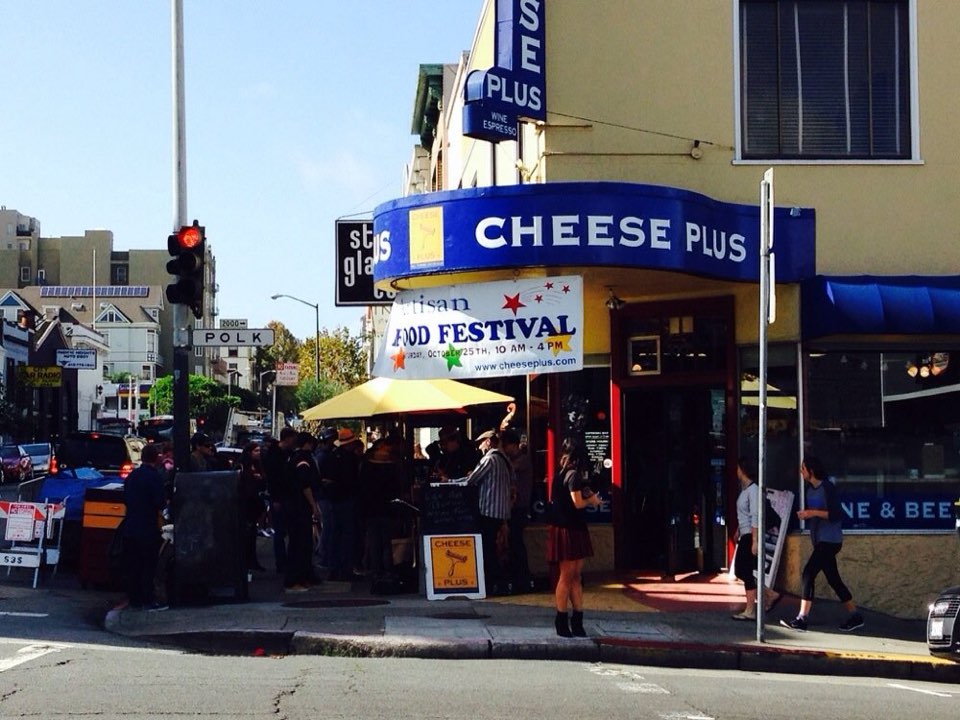 Photo: Ann L./Yelp
Photo: Ann L./Yelp
Other residents have told the supervisor that there are already enough grocery options in the area. “If this was a neighborhood that was a food desert, it would be a different story, as some neighborhoods in San Francisco are,” Peskin told us. “But Polk Street is not Anywhere, USA. It’s one of the reasons why so many tourists visit us. This is an opportunity for merchants and neighbors on a mile-long stretch to start envisioning what they want Polk Street to look like in the next 10 to 20 years," he said.
Currently, there are several grocery stores in the area that serve the neighborhood, including an existing Whole Foods Market at 1765 California St., Trader Joe's at 1095 Hyde St. and Real Foods at 2140 Polk St. The former Big Apple Grocery at Polk is slated to become a second outpost for The Market, the high-end grocery store and soon-to-be food hall below Twitter's headquarters on Market Street.
Polk Street neighborhood associations have also garnered support for a ban from organizations outside of the area. A letter of support from the North Beach Business Association states, “We believe that by only allowing independent businesses to operate, we have fostered a positive atmosphere which encourages the continued presence of unique stores and restaurants which define our commercial corridor ... San Francisco is known as a City of neighborhoods, each with its own personality and special qualities. An excessive amount of formula retail destroys this kind of neighborhood.”
Some Lower Polk Businesses Hesitant To Add More Restrictions
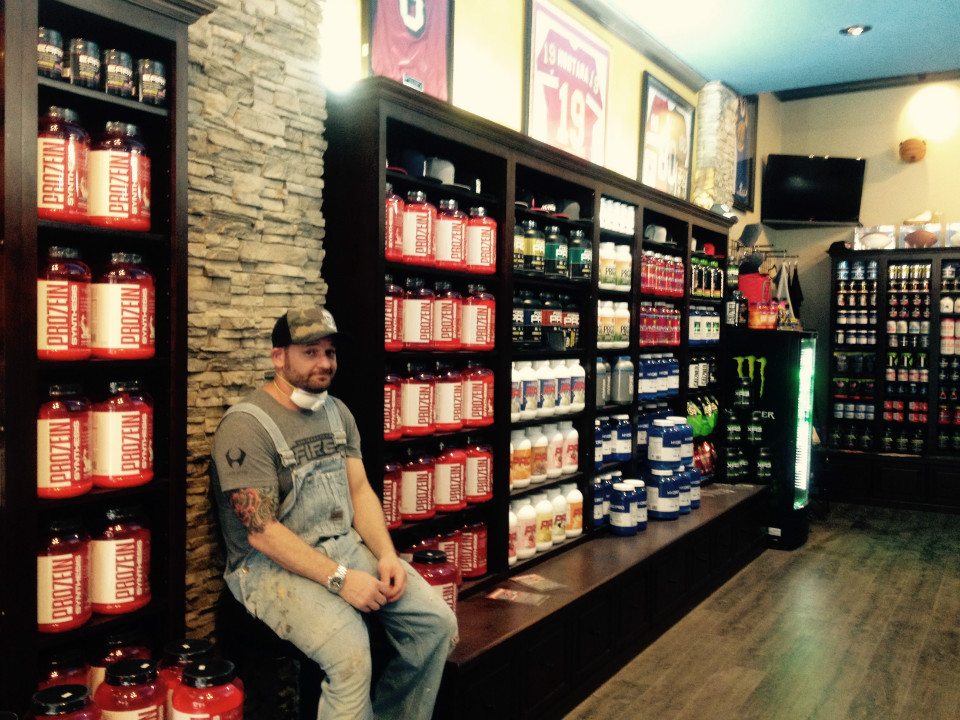 Jason Miller, owner of Nutrishop in Lower Polk.
Jason Miller, owner of Nutrishop in Lower Polk.
But not all neighbors are so supportive of the proposed ban. Jason Miller, owner of Nutrishop at 1118 Polk St. in Lower Polk, said he had to spend over two years navigating the Planning Department's current system for considering new formula retailers on Polk, while still paying rent on the space he leased. While he licenses the Nutrishop name to sell his products, he is an independent business owner, not a corporation or a franchise, he asserts. Small businesses that choose to license a brand, rather than become a franchise, pay a flat fee to a corporation in order to have permission to use their intellectual property, whereas franchises may use the corporation’s operation and distribution systems. Regardless of this difference, the city does consider Miller's Nutrishop formula retail.
“It’s definitely a gray area,” said Miller, who said an outright ban on formula retail in the corridor is unnecessary. Although, he added, “I also don’t want to see a Walgreens on every corner.”
Yahya Awadalla, owner of Mustafio’s Pizza and president of the Lower Polk Business Collaborative, offered a similar stance on the proposal, stating that “there should be some government regulation on which businesses get to open up in the neighborhood." But he is not in favor of closing the door completely to formula retail, he said.
And while some may be critical of the proposed formula retail ban legislation, saying that it is NIMBYism for not wanting to allow a new retailer to open up in the neighborhood, Supervisor Peskin disagrees. “In some ways, it is the opposite of NIMBYism," he said. "A lot of people are saying ‘yes in my backyard’ who want and support more housing in the neighborhood.”
The proposed legislation is set to be reviewed by the Land Use and Transportation Committee on March 3rd the Small Business Commission on April 25th and the Planning Commission on April 29th.

